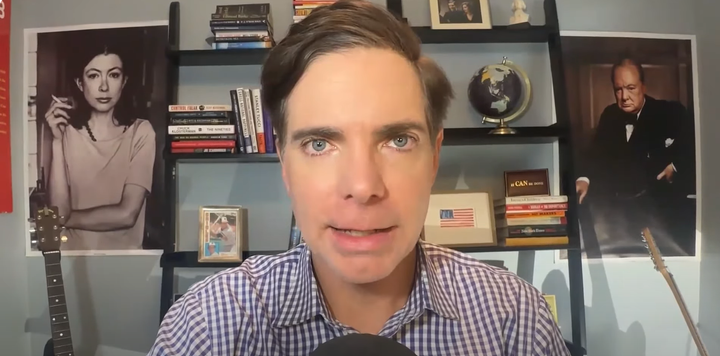Policies That Were Implicated in The Grenfell Tower Fire in London also Imperil Us in West Virginia
When rhetoric is left unchecked, it can lead to disastrous policies.

On 14 June 2017, a high-rise fire broke out in the 24-storey Grenfell Tower block of flats in North Kensington, West London, England, at 00:54 BST and burned for 60 hours. Seventy people died at the scene and two people died later in hospital, with more than 70 injured and 223 escaping. -Wikipedia
Only the sides of the house were left, the rest disappeared as the fire burned so intensely. I was told that neighbors got up in the dead of the morning to see the inferno. Fortunately, the family got out before the fire consumed their house. When I saw the remains of the home, I noticed that the house across the street had a great deal of warped siding that appeared to be caused by the intensity of the heat.
This was here in the Eastern Panhandle of West Virginia where as a candidate I was going through every street in the district I hoped to represent. I learned as much as I could about the status of homeowners and what power they had to protect their homes and neighborhoods. Some of what I learned was shocking.
But why did I bring up Grenfell, a multi-home residential tower of hard working-class people in a posh section of London that was destroyed by fire? I had been visiting New York City and saw that a docu-play was being performed about the Grenfell fire called Grenfell in the Words of the Survivors . I had vaguely remembered the news of the fire before I saw the play. And the play was wrenching, told mostly from the actual words of survivors and quotes from the hearings into the disaster. In short, a building filled with hard working people that was supposed to be maintained properly, was not safe and so badly upgraded with exterior cladding that it became a death trap when the cladding turned the tower into a massive candle.
The connection of the Grenfell Tower fire and the problems in West Virginia are related to how policies are engineered in each of our societies. The inquiries into the Grenfell Tower maintenance and fire safety issues showed how local and national policies and priorities made the fire and the high death toll possible, if not inevitable. In West Virginia, we have also made mistakes that have led to high death tolls in our mines and communities.
For decades the rhetoric of “smaller government” and “deregulation” has been perverting our ability to discuss policies. Both here and in the UK, this rhetoric is leading to policies that dehumanize us and confound communication. Saying you want the government to serve a small number of people sounds horrible. But saying you want “smaller government,” but then promoting policies that serve only a small number of already powerful people can be successful false advertising.
And saying that getting rid of laws that disadvantage most people in favor of that same small number of well off people sounds as horrible as it is. “Deregulation” is a euphemism for changing the laws to favor the few. Regulations, which are a form of law, are needed have efficient markets. By perverting language to say that markets that are less “regular” are somehow “free” is contrary to reality. A major form of regulation involves measurement or as NIST.gov puts it:
“Standards allow technology to work seamlessly and establish trust so that markets can operate smoothly.”
Imagine going to the gas station that is not regularly checked by a government agency to make sure that the gallon is actually the same gallon as every other gas station. It would wreck the market for gas. Getting rid of the complicated regulations that allow trademarks would reduce markets to an unfixable mess. Imagine seeing a box of your favorite cereal and finding out that a knock off company can sell sawdust with the same name.
Both Thatcher’s and Reagan’s conservative movements used rhetoric that advantaged the already powerful and wealthy to give them an unfair advantage in what is supposed to be an even playing field in our economic system. Although improving laws and regulations might be necessary to improve market efficiencies, claiming to “deregulate” is just a way to change the regulations to advantage a few.
And for the last few weeks, the podcast hosts of “The Rest is Politics” have been talking about Grenfell as the new Labor British government works to reset the policy discussion to one based on reality. The reality of disasters wake people to the need of regulations and ignore the rhetoric that is designed to seem neutral, but often leads to deadly disasters and to markets crashing.
In West Virginia, numerous coal mine disasters and now the opioid epidemic, woke people up to ignore the kind of rhetoric which diminishes life and our economic condition. Unfortunately, those who push for smart regulations and economic growth, often echo the rhetoric, even when opposing it.
Knowing that the rhetoric Republicans parrot of “small government,” not only confounds the public, but even the Republicans use these verbal devices”, gave me a huge advantage when drafting legislation. Republicans often fall into believing their own propaganda, and that allows those who are aware to pick apart bad policy arguments. That is how I was able to get legislation passed when there ended up being two Republican related bills that were based on bad and heavy handed regulations. More on this in a later article.
I am hoping that we get to the point where that false and harmful rhetoric is finally understood for being self-destructive to our society without waiting for the next disaster. So when you hear someone tell you they believe in smaller government, know that it just means having a government that serves the few and regulations that advantage the already powerful against the rest of us.
Feel free to join the conversation about the issues raised in here by participating in AuthenticWV's social media site: https://posts.authenticwv.org/






Comments ()